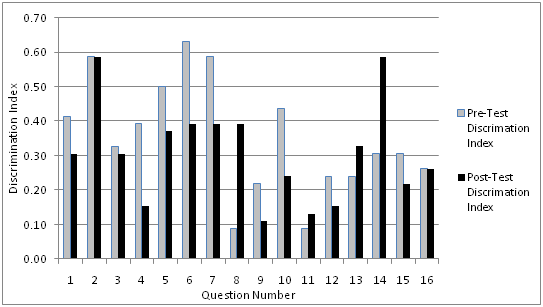|
2012 U.S. Professor of the Year
Professor, OCW advocate, socio-economic diversity champion, one-pony pedagogy assailant, UDL believer, replicating education-research studies supporter.
|
|
|
HOME | NEWS | TEACHING | RESEARCH | STUDENTS | TEXTBOOKS | PUBLICATIONS | NEWS ARTICLES | CONTACT
|
|
Measuring Student Learning Using Initial and Final Concept Test in a STEM Course Effective assessment is a cornerstone in measuring student learning in higher education. For a course in Numerical Methods, a concept test was used as an assessment tool to measure student learning and its improvement during the course.
The concept test comprised of 16-multiple-choice questions and was given in the beginning and end of the class for three semesters. Hake's gain index, a measure of learning gains from pre-test to post-test, of 0.36 to 0.41 were recorded. The validity and reliability of the concept test was checked via standard measures such as Cronbach alpha, content and criterion related validity, item characteristic curves, and difficulty and discrimination indices. The performance of various subgroups such as pre-requisite grades, transfer students, gender, and age were also studied. Our analysis also shows that certain subgroups' performance in the pre- and post-concepts test is significantly better than others. For example, students with prerequisite GPA≥3.0 perform better than those with prerequisite GPA<3.0, and non-adult students perform better than adult students do. Table. Student performance in pre- and post-concept test over three semesters
Related Papers A. Kaw, A. Yalcin, “Measuring Student Learning Using Initial and Final Concept Test in a STEM Course”, International Journals of Mathematics Education in Science and Technology (in press). |

